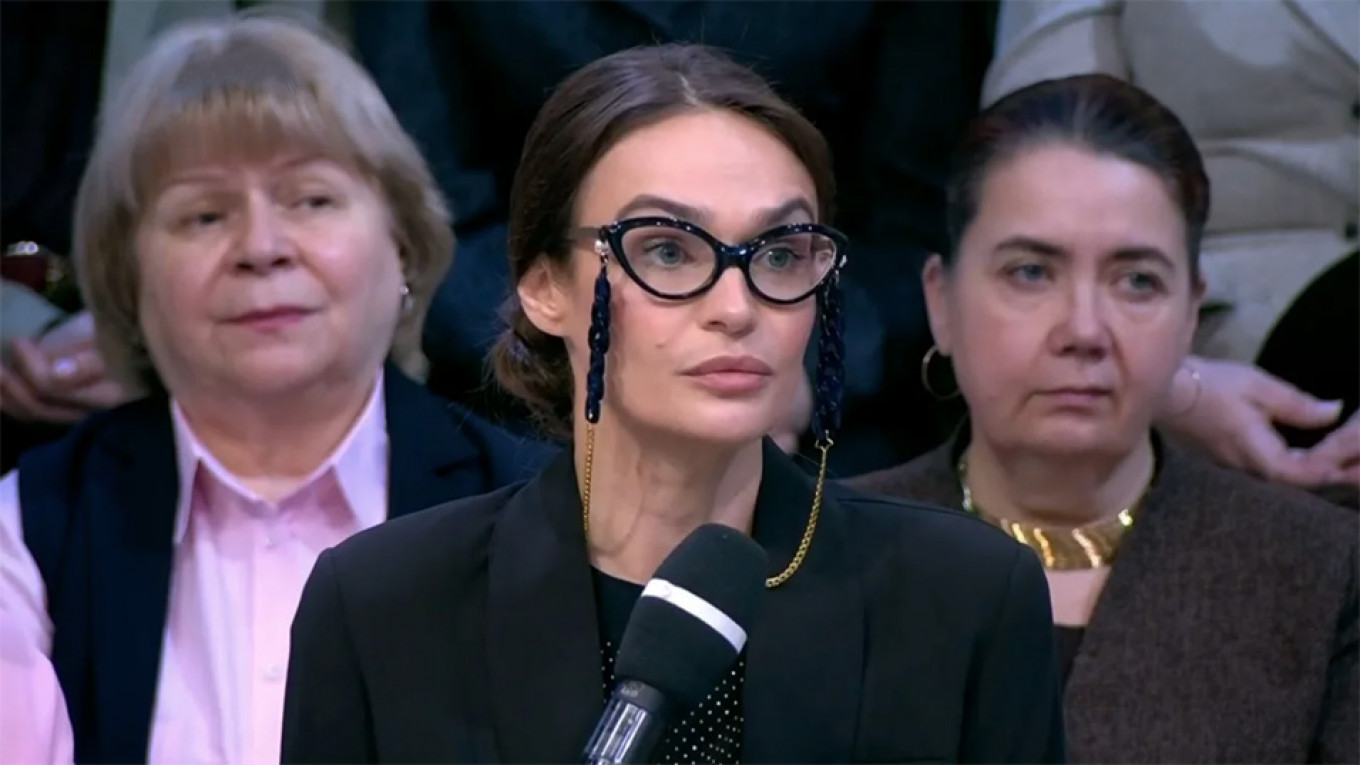
A popular Russian television host and Instagram blogger faces extremism charges over her posts criticizing President Vladimir Putin’s efforts to encourage population growth without addressing economic hardship, the online tabloid Super reported Monday.
Alyona Vodonayeva sparked controversy in December for urging low-income Russians not to give birth to “slaves to this state.” She doubled down on her pro-abortion stance after Putin announced a new spending package on families in January.
State television and government officials admonished Vodonayeva for speaking out, often pointing to her modeling career and her past as a reality television host to back up their criticism. Vodonayeva, 37, accused her critics of sexism.
Police in Moscow invited Vodonayeva for an interview last weekend as part of an inspection into “inciting hate” over comments that include her allusion to “slaves,” according to a police letter published by Super.
Police are also reportedly probing the statements “I despise impoverished families who give birth to three or four children” and “It is mostly the rich or uneducated sheep who give birth in Russia.”
“I’m not going to take my words back and I’m ready to address every line [with the police],” Vodonayeva told the tabloid, addressing its report.
Her lawyer Yekaterina Gordon said there was no legal basis to open a criminal case over the statements.
“Alyona expressed her opinion, which has divided a large number of people. I suspect there are certain desperate public organizations that are trying find a reason to ruin Alyona Vodonayeva’s life,” Gordon was quoted as saying.
The charges of inciting hatred carry a prison sentence of up to six years.
In his annual address to Russian lawmakers last month, Putin said he plans to expand government subsidies for low-income families and new mothers in a bid to boost Russia’s lagging birth rate and reverse its population decline. The Finance Ministry estimates that the proposed changes will cost up to 450 billion rubles ($7.31 billion) this year alone.

Leave a Reply